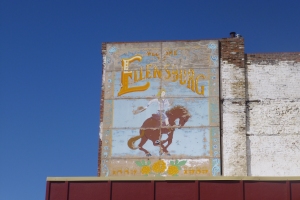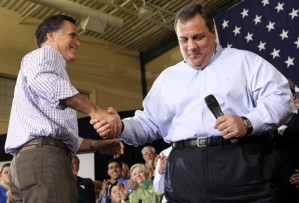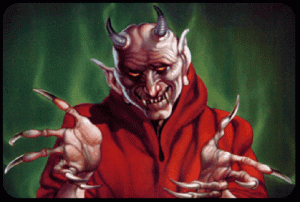THIS IS A FREE BLOG! DO NOT PAY FOR IT!!! TEACHERS ~ IF YOU WANT COPIES, WE WILL SEND THEM FREE BY REQUEST!
Amiri Baraka is Beat.
He walked away from the scene in Greenwich Village, where he edited literary journals Yugen, Kulchur, and The Floating Bear from 1958-65. Working with Hettie Cohen, Michael John Fles, and Diane Di Prima, respectively, the journals brought new works by new names. Featured writers included Jack Kerouac, William S. Burroughs, Gregory Corso, Allen Ginsberg, Phillip Whalen, and Michael McClure. He co-founded Totem Press and was influential in the launching of Corinth Books. Yugen magazine was perhaps most significant as the platform for the “new” Beat writers, allowing their work to find a place in one of the first venues to give credulity to the movement.
A wise and controversially outspoken man, his views have kept him on the Outside, the Beat side. The U.S. Air Force discharged him after two years of service due to his belief in communism. In 1961 he was arrested for distributing obscenity after mailing copies of The Floating Bear, Issue Nine, to subscribers; and his presence at the 1967 riots in Newark, New Jersey, saw him arrested and severely beaten by police. It was also the year he changed his name from LeRoi Jones to Amiri Baraka. The charges against him were eventually dropped and much of his support came from the Beat community.
From Preface to a Twenty Volume Suicide Note, his first book of poems in 1961, to his upcoming play, The Most Dangerous Man in America, he has stayed the course, worked and fought for his beliefs of an equitable society.
With the death of Reverend Martin Luther King, Jr., (who visited Baraka’s Newark home a week before his murder), he left the mostly-white Bohemian literary scene and the environs of the East Village to take up a more radical stance towards Black Nationalism. But despite his distancing himself from the Beats in the mid-sixties, Baraka read poetry and attended panel discussions at Beat-haven Naropa Institute through the 1980-90s, and remained friends with Ginsberg until Allen’s death in 1997.
More recently his poem, “Somebody Blew Up America,” brought an end to his New Jersey “Poet Laureate” post when Governor Jim McGreevey took umbrage to the poem’s questioning of the events surrounding the 9/11 destruction of the World Trade Centers. The “Who?’ of the exploding owl in the poem echoes the angst of Ginsberg’s voice in “Howl.” Having heard Ginsberg recite live from ten feet away, this writer finds both poems equally as exciting and important.
Baraka has been called “the triple-threat Beat.” His talent has brought him recognition and awards not just in poetry and prose but also in theater as an Obie Award winning playwright. A sampling of awards bestowed upon him include the PEN Open Book Award, the Langston Hughes Award, the Rockefeller Foundation Award for Drama, and National Endowment for the Arts and Guggenheim Foundation fellowships. Maybe one of the most bittersweet titles placed on him is that of the Poet Laureate of Newark Public Schools, which he received after Gov. McGreevey’s actions against him
Additionally, he is a member of the American Academy of Arts and Letters, and regarded as a respected academic, having taught at the state universities of New York at Stony Brook and Buffalo, Columbia University, and other institutions. barakaimagec
We started by asking why he walked away from the Beat Movement, which gave him a vehicle to establish himself as writer/thinker/activist to a wider audience.
~
Well, that whole thing [the Beat Movement], was very explosive, but remember that the whole Civil Rights Movement was intensifying. I got out of the service in 1957. The Montgomery bus boycott had gone on a couple years before. After they had successfully made them integrate those buses, they blew up Doctor King’s house. At that point, it really began to be clear this was the kind of struggle that was going on particularly in the south, at least for me, having been in the service for two years.
That was the point that it became clear… until they blew up King’s house and he says… you know, the black people showed up at his house with their rifles and said, “What should we do, what should we do, Doctor King?” and he said, “If any blood be shed, let it be ours.” So my whole generation reacted negatively to that and said, “No, it won’t be like that. If people are going to be shooting, they are going to be shooting back and forth.”
Malcolm X appeared at that scene with his whole idea about, you know, “You treat people like they treat you. They treat you with respect, you treat them with respect. They put their hands on you, send them to the cemetery.”
So a whole generation of black youth responded to that positively as a sign that Doctor King was indeed a normal man instead of some kind of a saintly non-violent kind of perseverant. During that period, the next years of 1958-1960… In 1959, Fidel Castro led that revolution in Cuba so I went down there the next year, 1960, to Cuba and met Fidel, Ché Guevara, and all those people. I also met the black activist from North Carolina, Robert Williams, who was in exile in Cuba because he had really been practicing a kind of a self-defense in North Carolina, a thing that actually ended up with him stopping the [Ku Klux] Klan – removing their hoods… and then he found out it was the State Police! Then they framed him for kidnapping a white couple and he went to Cuba to escape that kind of injustice, so I met him.
Anyway, that was the point – 1960 – when, while I had this kind of awareness of the Civil Rights Movement, I actually became much more directly involved in it. So, about 1965, when Malcolm X was murdered, I felt the best thing to do would be to get out of the Village and move to Harlem. I found that, for a lot of black people, that event made us take stock of ourselves and move out of Greenwich Village into Harlem. That was actually the point. I began the Black Arts Repertory Theater Company in 1965 at 130th Street and Lenox Avenue.
Who else was involved in the theater?
Larry Neal, poet, and Askia Touré, poet, those were two of the leading figures. Many people came to Harlem who were not already in Harlem, because they were attracted to the Black Arts Repertory School that we opened. We would send out trucks into the neighborhood every day… four trucks, one had graphic arts, the other had poetry, the other had music and the other had drama. We did this every day throughout the summer of 1965 so that created a kind of militant venue for Black Arts. They found that was desirable rather than having to submit to the continued racism of Greenwich Village.
The perception is that the Village was not so racist.
At that particular point, a lot of young black people felt it was better to move to Harlem to take an active kind of fighting stance against it, rather than to be isolated in Greenwich Village.
Taking action was better than writing about it or publishing work about it?
Right, absolutely… it was not only about the publishing; it was about actually being an activist in that community and on the street and actually making Black Arts relevant to the movement rather than simply commenting on it.
Do you feel that we are losing ground and giving back too much of what was gained then?
Absolutely! It is like one step forward, two steps back. The whole Obama campaign, the victory… on one hand has brought a kind of very sharp reaction. It is like after the Civil War – once the slaves were so-called “emancipated,” that’s when you get the Ku Klux Klan and the black “codes” and all of that strict re-segregation. Rather than ending slavery you got the whole segregation of the south and the whole dividing of the south into black and white even though they were theoretically free from slavery… but slaves were plunged into sharecropping and many times they couldn’t go anywhere. The white people in the south wouldn’t let them go until years after slavery was over. They started going north and west. You can read about that in a book called The Warmth of Other Suns by Isabel Wilkerson. She charts that whole immigration out of the south by my people.
Amiri BarakaThe Obama Administration… since the first election, racism feels more prevalent.
It’s a stirring reaction to that election. Now we have the Tea Party. The Tea Party is correspondent to the Klan. They appear… the whole takeover of the Congress and the House of Representatives certainly existed because of these kinds of racist incidents – whether Trayvon Martin in the South [Martin was shot in February 2012] or shooting Amadou Diallo in the Bronx [police in February 1999] or the various kinds of murders out in California. It’s a sharp reaction and it shows the reaction is not just against black people but even young white people, like those taken up with the whole Occupy Movement across the country. There is just widespread dissatisfaction in society as it is.
How do you feel about the Occupy Movement?
I think it’s a good idea. It is uncertain and uneven but still a good idea and many times there are too many people completely lacking in the experience, in social struggle, or just anarchism, walking around who believe in no kind of government and no kind of organized response but certainly who are opposed to blacks in politics and it is a very ragged kind of result that comes out of that – but still the idea is a good idea and whatever kind of result you can get from that, even though it’s going to be much less than it would be if it were organized, you still have to support it.
Part of the reason is that it’s like the Sisyphus Syndrome. The only thing that’s happening now is that, between the Republican force pushing to the right, to restore the kind of Republican rule to go to back to Bush, which had been more extreme – what is underneath this is an attempt to erect a kind of corporate dictatorship. Coming out of all these Republicans’ mouths, especially the Tea Party, is the whole question that government is too big, that government is the enemy. The enemy is the lack of development. The fact that poverty still poxes this country and the development is, so far, uneven without a gap between the little six-tenths of one percent of the wealthy and the rest of the people. This has grown bigger and, actually, since Roosevelt and the New Deal we were talking about closing that gap. We talked about creating a much more equitable society. Now even the middle class is feeling the kind of strains that the working class is feeling. So the only thing the republicans have done…I mean, look at the surplus that Clinton had, billions of dollars in surplus, George Bush got rid of it…in the couple of terms that Bush had, he got rid of it a couple of times. He got rid of it.
How? The war, certainly… 9/11 was, to me, just a door opening to exploit the Middle East.
Like the 2.9 trillion dollars that Rumsfeld announced was missing on the day before 9/11? He claimed they didn’t know what they did with it…
Right! They didn’t know what they did with it… the people who got it know what they did with it… (laughs).
Can any government be righteous?
I’m a communist. I’m a Marxist. I believe that, ultimately, people will become sophisticated enough to understand that they themselves must rule – not just some little, small elitist group of exploiters. That is what the struggle is for – to see if this society itself becomes equitable. It is going to be hard because we are going to have to go through this period of intensified corporate domination, this last ditch struggle and the fact that it is now a global economy. You see that the struggles on Wall Street have affected the whole world and the only way that they feel they can gain any kind of superiority is war. That’s when they can hire more workers. That’s when they can fill their coffers and that’s exactly what they want to do… war… and that’s the only way capitalism can remain balanced on two feet, so to speak, but it will never be secure. That’s the problem that the people of the world face, that they have to finally overthrow these governments. They have to overthrow the monopoly of capitalism. That’s the task that faces humanity if it is ever to be truly civilized. You can’t be civilized with capitalism. It is too elitist. Most people are up against it. Most people cannot ever get a real education. Most of us still live in slums. It is something that is destined to be destroyed that will be very difficult to destroy it in its last days.
Speaking of last days, what do you think of the FEMA camps and the things like the Georgia law that is in Congress to bring back the guillotine?Baraka book cover
Are you serious about the guillotine?
Yes, it is a bill in legislature. They say they are running out of the drug to kill people with. You also have the Social Security Administration buying thousands of rounds of ammunition lately and you have to wonder what they need that for.
That’s the penalty for moving towards a corporate dictatorship because these people, the republicans and the Tea Party and these people, they’re not talking about the government. They’re talking about the government. They are talking about straight-out rule by the rich. It may be a terrifying scenario but that is what is in the works unless the people can find the wherewithal, the understanding, and the organization to resist it.
Even in its ragged state, I would rather have the Occupiers than nothing at all. The problem is that, too often, the people in power are opposed to the Occupiers. That’s the problem, most of the people who are in these posts, these small bureaucratic posts, they are even acting against their own interests, not to mention the police and those who are charged with keeping the order – an order that does not even serve them! It’s a tragic situation. But I don’t know what Social Security would be doing with all those guns. I don’t know that.
“Somebody Blew Up America.” You were censored by the New Jersey governor for publishing and performing this poem. The media depicts others who have questioned the events of 9/11 as crazy.
I understand it, yeah. That’s it. You got it. All you have to do is open your mouth, like they say you’ve got freedom of speech – as long as you don’t say anything. The minute you open your mouth, then that’s the end of that. Then they attack you. It has certainly happened to me. It happens to all kinds of people… even somebody like Bruce Springsteen, when he first sang that song about “fighting the yellow man for the white man.” They silenced him for a few years but he managed to come back. It’s that way, if you talk to say anything. There is a long history of that, particularly (for) Afro-Americans, but everybody else, too.
Like that attack on the film industry in the fifties, to remove any taint of the Left from the film industry, the blacklisting of the whole film industry. The whole McCarthyism thing and the fact that, during World War Two, the United States’ closest allies were Russia and China, but after World War Two our closest allies were suddenly the same people we were fighting, Germany and Japan… figure that out! Then China and Russia became our worst enemies. Why is that? It’s because they wanted to cut loose any kind of sign of supporting socialism. Since China and Russia were socialist countries our struggle with these socialist countries, then, was to make sure they were opposed to that (socialism). Finally, Russia succumbed and China has been riddled with imperialist advance. Finally, this corporate America is what dominates and wants to make sure that monopoly capitalism and imperialism outlast anything.
Why do you think people do not pay more attention to this?
The people who could make the most noise about it are afraid they are going to lose their whatever, their positions, afraid they are going to lose what they have. The problem with the great majority of people is that they are not organized and sometimes they don’t have the facts so they don’t know what is going on. It happens too often, even if you elect good people… like in Newark back in 1970, the first black mayor, the second black mayor. We haven’t had a white mayor in Newark since 1970… but then we get somebody like Cory Booker, the present mayor, who actually is sent here by corporate ventures to turn the whole advance, the drive to some kind of equitable city government, around. Now we are struggling against that. Now we have a situation where the mayor is trying to sell our water to private interests. It’s unbelievable. He is trying to sell the water plus about two thousand acres of land where we have the water.
Water is getting more expensive, like oil.
That’s what they want to do – jack the prices up and so this is an ongoing struggle. The largest corporation in Newark, which is Prudential Insurance, the largest insurance company in the world, they haven’t paid any taxes since 1970. One of their buildings is worth 300 million dollars a year in taxes. They were given a tax abatement in 1970. That was the “white-mail” they put on the new black city government, “Either give us a tax abatement or we are leaving.” That is not supposed to be eternal. I mean, you could give them a thirty-year abatement and it still would be over by 2000. We still have twelve years of twelve times 300 million dollars a year, we wouldn’t have a deficit… but they refuse to pay their taxes. They built an arena. They have the NCAA [basketball]; they have the Devils hockey team, which is an interesting idea for Newark. When they have all kinds of big events, they say we owe them money. They utilize our water. They utilize our police for security. We have to pay the police overtime any time they have an event and they say owe money.
Funny how all the venues are named after financial institutions these days, as opposed to names of great people.
That’s right. That’s just an indication of where everything is going. Everything is named after a bank or some other kind of corporation… even baseball stadiums. That’s absurd. Here everything is named after Prudential. (laughs)
Which medium do you find most useful in reaching people and motivating them?
The problem, again, is the control by the organizations. In the sixties, for instance, the whole emergence of abstraction and the corporations first fought against abstraction. That is the problem with the arts… it is like “freedom of the press”. You can have freedom of the press if you own a press otherwise you have to deal with a mimeograph machines and small distribution. That’s the way it is with all of the arts. That is the theater of grants. Somebody has to bestow that support upon the artist. Unless you really qualify, philosophically, to be in those venues, you are not going to be there.
I produced a play back in the sixties when I was perhaps unclear what I wanted to say, though they could deal with that to a limited degree. Back then it made it very, very difficult for me to get anything onstage. I have a play coming out in the spring about [W.E.B.] Dubois, called The Most Dangerous Man in America. That’s what the FBI called him. It’ll be a month run at a small theater on the Lower East Side.
You are accomplished and awarded in so many art forms… if you were to be remembered by one piece of work, what would you choose it to be?
I think the book on black music, Blues People, that I wrote… people still quote that and cite that. I think that is the most important one. People came out in 1963 and is the book of mine that is the most constantly-referenced. I think it was the most popular. I have had other works which had a great deal of (laughs) in the United States.
It’s about African-American music from Africa and how it developed in the United States. The seeds of that book came to me in a class I had with a man named Sterling Brown, a great poet who was my English teacher at Howard University. A friend of mine named A.B. Spellman who is also in the book, and who wrote a book called Four Lives in the Bebop Business, we had both finished class and he invited us to his house because we had some pretensions of knowing about the music. Once we were there, he showed us. He had this library with music, by genre, chronologically, by artist, and he told me, “That’s your history.”
In that kind of capsule statement what he was saying was that if you analyze the music, if you follow the music, you’ll also find out about the peoples’ history. So that’s what I did – tried to show how when the music changed it signified change in the status of the people and their condition. Everything about their lives has undergone some important change and the music is a result of the affect of the change. It goes to the earliest kind of music – the slave song, the early blues, the city blues, you know, the kinds of variations on that… like coming into the north and how it affected the music. It covers up to the 1960s.
You collaborated with The Roots about ten years ago… in hip-hop. Who are the most important artists or have been?
It changed a great deal from the early hip-hop of the 1970s, which was just a field called “rap.” Hip-hop is actually a kind of a category that includes different aspects of it all… the DJ, the rapping, graffiti, break dance. Rap, particularly, changed a great deal from the 1970s. The early rappers were much more conscious of making a social statement of protesting the kind of conditions they lived in and that black people lived in. It was really a kind of urban journal type thing, like Afrika Bambaataa from the South Bronx. Then, later on, people like Kurtis Blow and Grandmaster Flash and the Furious Five.
RunDMC was a period of development of that was put together by the guy (named) Russell Simmons, who then became rap’s biggest entrepreneur.
Do you think people like Russell Simmons can be as well-accepted and still keep an edge?
People have to sort that out themselves and find out how those kinds of ties (either) support what they are doing or obstruct it. They might just change what they are doing or what they thought and come out with something that may not be as important as what they were doing before. It depends on how you deal with relationships with those institutions and organizations.
Can you tell more about your new play?
The play is about W.E.B. DuBois, when he was about 83 years old and was taking a very activist position against nuclear weapons and everything, including going to conferences in Europe to protest nuclear weapons. He was indicted as an “agent of foreign power,” being a “father” of books. He had just run for political office, he and a man named Vito Marcantonio, a lawyer who was really the last Italian communist in the U.S. Congress. Anyway, when DuBois was indicted because he was in a peace organization [he was chairman of the Peace Information Center, formed in 1950], they had the trial in Washington, DC, and Marcantonio defended him. He was the lawyer.
It was a drawn out trial but finally he won the case because it turned out that the chief witness against him was, in fact, the man who had invited DuBois to join the peace organization. So the thing was overthrown but DuBois was prescient enough to understand it. that he said, “Now the little children will no longer see my name.”
After that they took his passport and tried to keep him from traveling. Then in 1958, the Supreme Court overthrew that ruling and gave him back is passport so he was able to travel throughout the world… Europe, Russia, China. He had been invited to edit Encyclopedia Africana by Kwame Nkruman, who was the newly-elected Prime Minster of Ghana. He went there, declared his membership in the Communist Party and he died in Ghana on the day before the March on Washington, which was started by Reverend Martin Luther King, so it’s a real cycle.
That covers a lot of territory.
It is going to be mainly the drama of just before the indictment… and how they prepared for this trial. The main part of the play is the trial itself, and the rest focuses on his travels around the world, particularly Russia, China, and Ghana. That should be out in spring of next year.
Did you have a personal relationship with Malcolm X?
I met Malcolm one time, after he had his house in Long Island firebombed and he was moving around Manhattan. I saw him, actually, with a man named Mohamed Babu at the Waldorf Astoria, where Babu had a room. We met into the wee hours of the morning. That was the only time I actually talked to Malcolm.
You and Lenny Bruce were often mentioned in the same news stories and seem to have been crucified at the same time.
I didn’t know him. Like I said if you speak out and identify with any kind of activism you are going to get jumped. That’s it – and you can’t expect any other thing to happen.
Did you like his act? Were his racial routines funny to a black person?
Sure, at the time. What was relevant is that he was trying to be for real, to bring some reality to America and make a commentary on America and that was the point. Given the content, he was attacked for profanity and obscenity and all those things.
At that time, I was arrested for sending obscenity through the mail [for] publishing The Floating Bear. In one of them I had a play of mine in there or a short story… whatever, and an essay by William Burroughs. [The material deemed obscene consisted of “The Eighth Ditch” an excerpt from his novel, From the System of Dante’s Hell, and the Burroughs’ poem, “Roosevelt after Inauguration”].
This stuff that happened to Lenny Bruce was common, given that situation, because that is when that whole attack was common when you tried to do that – you were met with some kind of withering charges. I defended myself in court by reading the decision on [James] Joyce’s Ulysses and certainly that won the decision for me… (laughs).
~
The 1934 Supreme Court decision to lift the ban on Ulysses opened the doors for the publishing of many literary works besides those published by Baraka. Joyce’s book was used in the defense of novels Lady Chatterley’s Lover and The Tropic of Cancer. The works of Amiri Baraka have, similarly, pushed open doors for new generations of creative minds to pass through.
Mr. Baraka was open and generous with his time. He still reads poetry in performance and we encourage you to see him if you ever have a chance. If you want Beat, he is more real than all the recent movies about the “usual suspects.” He is a living literary treasure and his work should be celebrated by all freedom-loving Americans and World Citizens.
Watch for his new play, The Most Dangerous Man in America, in spring and pick up a few of his books while you are waiting. He is the real deal and he speaks more sense than any other public figure that comes to mind.
Salute him and enjoy his work















